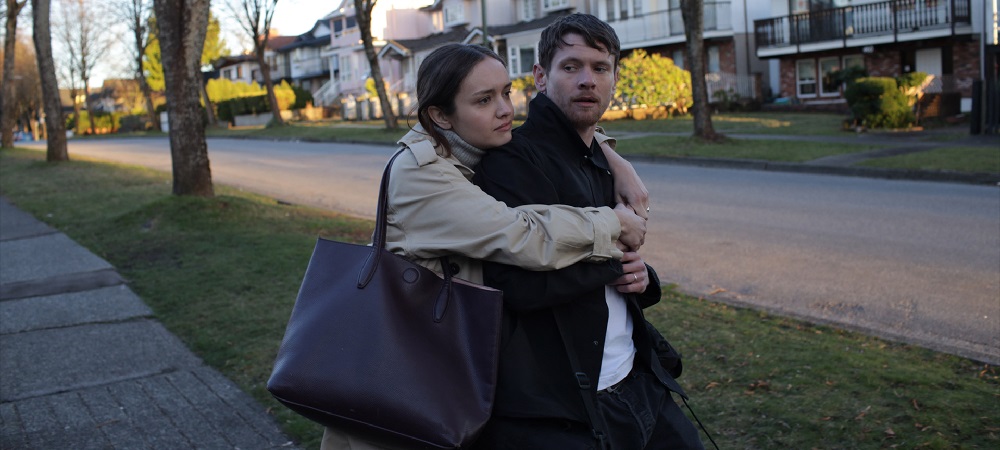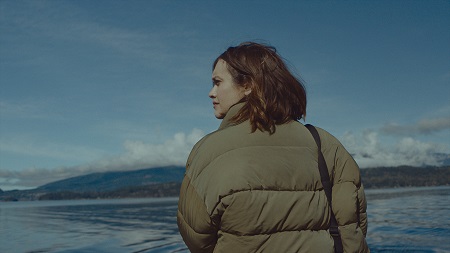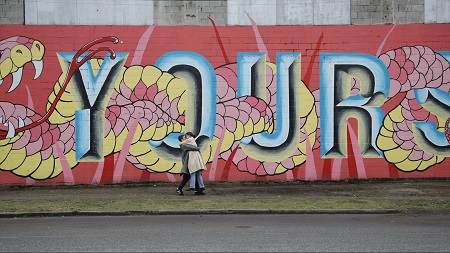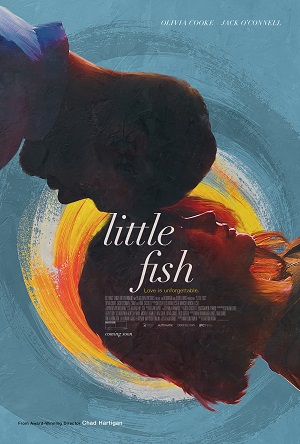
Little Fish an Unexpectedly Beguiling Pandemic Romance
Neuroinflammatory Affliction (NIA) is an acute Alzheimer’s-like malady that destroys the memories of the afflicted party. It can attack instantaneously. Bus drivers forget how to drive while sitting in an intersection. Musicians no longer know how to play their instruments in the middle of a concert. In other cases, the symptoms show up bit by bit, friends and family slowly watching their loved ones disappear right before their eyes.
Veterinarian Emma Ryerson (Olivia Cooke) and photographer Jude Williams (Jack O’Connell) are passionately in love. They knew they were destined to be together almost from the first moment they met, even if Emma happened to be in a relationship at the time. The two are soon married and in an apparent state of bliss. But when Jude begins showing early signs of NIA they are understandably shattered, desperately hoping a cure or treatment will be found before it is too late.
For reasons I shouldn’t have to spend much time explaining, Little Fish isn’t the easiest film to watch at the moment. It’s an unyielding drama that never shies away from the terrifying calamity sitting at its core, making Chad Hartigan’s (Morris from American) science fiction romance a rather perfect examination of what it’s like to live under the shadow of a massive global pandemic. Whether or not that was the original intent, however, is a question left for another day.
Cooke is marvelous. She carries this movie through all of its various ups and downs with magnetic grace. The actress makes Emma come alive, adding layers of depth that leap off the screen. There’s a divine moment where she comes across a line of people trying to get placement in an NIA study and the flurry of emotions that cross across her face as she realizes what this might mean for Jude floored me. Cooke is sensational throughout, and never did I feel like there was a false beat or movement to anything she was doing.
This is good, because as captivating as much of Hartigan’s heartbreaking scenario might be, there is an uncomfortable jerkiness to the narrative’s development I frequently found frustrating. The filmmaker’s attempts to have his story mimic the discombobulating effects of NIA is laudable, even if it doesn’t always work. It was hard for me to intimately connect to the potential sudden disappearance of Emma and Jude’s memories, mainly because I never quite bought into their romantic entanglement to begin with.
This is a fairly major issue, and one I do not want to minimize. Still, where Hartigan excels is in his world-building and how he fits all of his beguilingly nonlinear puzzle pieces together with such seamless ease. There is a constant tension bubbling underneath the surface of Emma and Jude’s journey that kept me interested in discovering what was going to happen next. More, there a poetic lyricism to the climactic moments that brought tears to my eyes, the beauteous simplicity of these last few scenes filling my heart with unexpected joy.
This is what makes Little Fish worthwhile. Even though Hartigan could never anticipate his drama would be released under such conditions as those we’re all currently living through, in some ways he couldn’t ask for a better time for his film to do so. He brings a refreshing aura of hope to what initially appears to be a situation entirely absent of it, making this love story a sterling reminder that little things can work miracles, and making authentic human connections – no matter how they occur – a priceless gift worth celebrating.
– Review reprinted courtesy of the SGN in Seattle
Film Rating: 3 (out of 4)








